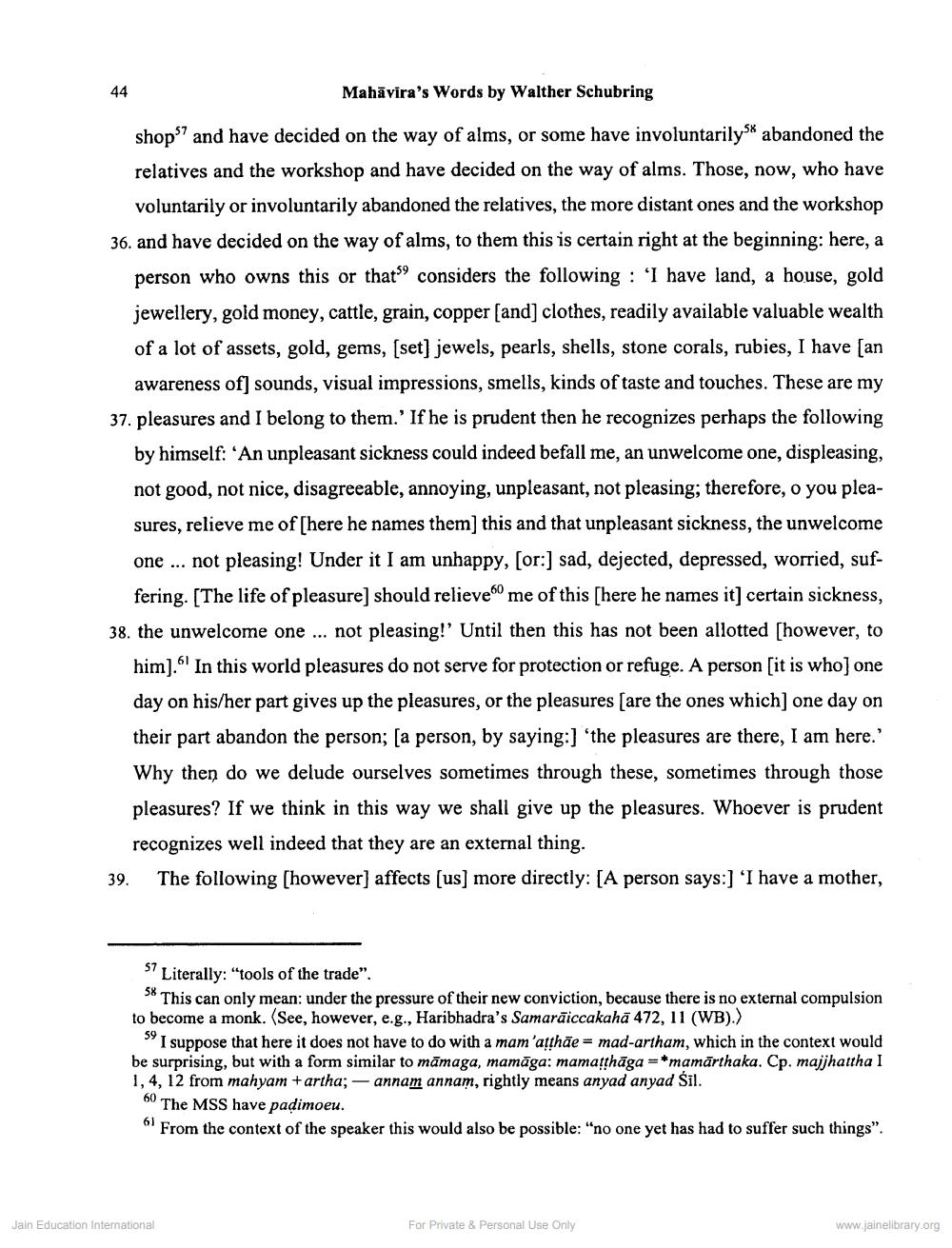________________
44
Mahāvira's Words by Walther Schubring
shops and have decided on the way of alms, or some have involuntarilys abandoned the relatives and the workshop and have decided on the way of alms. Those, now, who have
voluntarily or involuntarily abandoned the relatives, the more distant ones and the workshop 36. and have decided on the way of alms, to them this is certain right at the beginning: here, a
person who owns this or that considers the following : 'I have land, a house, gold jewellery, gold money, cattle, grain, copper [and] clothes, readily available valuable wealth of a lot of assets, gold, gems, (set) jewels, pearls, shells, stone corals, rubies, I have [an
awareness of] sounds, visual impressions, smells, kinds of taste and touches. These are my 37. pleasures and I belong to them.' If he is prudent then he recognizes perhaps the following
by himself: 'An unpleasant sickness could indeed befall me, an unwelcome one, displeasing, not good, not nice, disagreeable, annoying, unpleasant, not pleasing; therefore, o you pleasures, relieve me of [here he names them) this and that unpleasant sickness, the unwelcome one ... not pleasing! Under it I am unhappy, [or:) sad, dejected, depressed, worried, suf
fering. [The life of pleasure) should relieve me of this [here he names it] certain sickness, 38. the unwelcome one ... not pleasing! Until then this has not been allotted showever, to
him). In this world pleasures do not serve for protection or refuge. A person [it is who) one day on his/her part gives up the pleasures, or the pleasures are the ones which] one day on their part abandon the person; [a person, by saying:] 'the pleasures are there, I am here.' Why then do we delude ourselves sometimes through these, sometimes through those pleasures? If we think in this way we shall give up the pleasures. Whoever is prudent
recognizes well indeed that they are an external thing. 39. The following (howeveraffects (us) more directly: [A person says:) 'I have a mother,
57 Literally: "tools of the trade". ** This can only mean: under the pressure of their new conviction, because there is no external compulsion to become a monk. (See, however, e.g., Haribhadra's Samarāiccakahā 472, 11 (WB).)
» I suppose that here it does not have to do with a mam'atthāe = mad-artham, which in the context would be surprising, but with a form similar to māmaga, mamāga: mamatthāga mamārthaka. Cp. majjhattha I 1,4, 12 from mahyam +artha; - annam annam, rightly means anyad anyad Šil. 60 The MSS have padimoeu.
From the context of the speaker this would also be possible: "no one yet has had to suffer such things".
Jain Education International
For Private & Personal Use Only
www.jainelibrary.org




